Complex, multi-modal businesses require complex, multi-fuel solutions when it comes to replacing diesel and enabling their smooth transition to a low carbon fleet.
Parcel delivery organisation Evri is working with a suite of options, including electric, biomethane gas and hydrotreated vegetable oil, for its multi-modal fleet of cars, vans, mid-size rigid trucks and tractor/trailer combos.
Added complications are presented by the lack of infrastructure for some of the most suitable solutions, which have forced the company to invest in on-site gas refuelling facilities for its trucks.
Head of fleet David Landy (pictured above) joined Evri just under three years ago as the country was still gripped in the first phase of Covid. During that period, the colossal surge in demand for home deliveries saw parcel volumes double; much of that has been retained as people have adjusted to a more convenience way of shopping.
Evri is now the UK’s biggest dedicated parcel delivery company, delivering more 700 million packages a year.
Yet, despite the growth, its fleet size has actually reduced over the past couple of years as a new focus on efficiency and an overhaul of logistics requirements removed under-utilised vehicles.
“We are working smarter which includes greater use of spot hire to meet demand peaks during the year, rather than having the vehicle on fleet year-round,” says Landy.
“So our trailers, which peaked at 3,700, are now down to 3,100. We have also reduced our rigid trucks by increasing their size - we've gone from 12t to 18t for some of our trucks which accommodate bigger loads.”
Improved scheduling and routing have facilitated the move to larger bodies by consolidating journeys. Evri now has 550 rigids (tail-lift boxes) which run out of its depots.
Landy and his team are responsible for managing the vehicle fleet from customer to hub and onto delivery centres as well as O-licence compliance; a separate team monitors and manages driver performance (see panel).
A nationwide network of 20,000-plus independent couriers is responsible for the final mile delivery, apart from London where Evri deploys a fully electric fleet of 25 eSprinter vans.
They are part of an electric van fleet totalling 168 vehicles which have all been allocated routes to match their range.
Those routes have been mapped against a cautious plan of 70 miles, although the vans commonly achieve 120 miles thanks to a driver training programme which boosted efficiency performance.
Driving the transition is the Maidstone hub in Kent where all 25 vans are full electric.
“Our Maidstone drivers have to think differently so their breaks are based around fast charging locations,” Landy says. “They are making it work.”
Maidstone will be the blueprint for the rest of the van fleet to follow. Around half to two thirds of their charging is done on the public network with the rest on the 10 workplace 7kW chargers.
“The vans are all back to base and the duty cycle means they have eight hours of downtime to reach full charge,” Landy adds.
His wish list to ease the van transition to electric is a 14-metre 3.5-tonne cube with 1,100kg payload capable of 130-140 miles of range on a single charge - basically a Transit L4 or Sprinter L3.
“We don't want to go to 4.25-tonnes because of the tachometer requirements - we don't want that management in a van,” Landy explains.
The Evri van fleet numbers 700 although 250 of those are on flexi-rent to support fluctuations in demand.
The rest are leased with maintenance on three- or four-year contracts and cover around 35,000 miles a year.
Landy times their replacement to coincide with the Christmas period to allow an overlap between new models and those leaving the fleet.
“Christmas is our peak - it shapes our whole year,” he says.
Between October and January also marks the height of the rental fleet. Evri works hard to maintain strong relationships with its partners throughout the year to ensure it is first in line as rental demand rises. At that point it can hire in 150-200 additional vans as its parcel volumes rise by a staggering 750,000 per day.
Every 24-hour business cycle starts with Evri collecting parcels from its customers.
It uses 500 tractor units, of which around 100 are hired, based out of three hubs: Rugby, Warrington and Barnsley (the latter opened last September).
Almost half (190) of its own tractor units run on biomethane gas (compressed natural gas - CNG), Landy's low emission fuel of choice for the heavies.
They leave the site between midday and 2pm and return during the night, often working double shifts. Annual mileage can exceed 250,000km with the tractors replaced every five years.
This heavy-duty operating pattern underlines the huge challenge facing Evri should it need to transition its tractors to full electric: how to recharge up to 200 trucks at the same time at one site.
Landy doubts it is feasible and is happy to focus on CNG until manufacturers come up with viable alternatives.
“We have refuelling facilities on all three hubs and our strategy is to switch those trucks which travel the fewest miles to CNG, typically routes up to 400km (250 miles),” he says.
“There isn't the gas infrastructure, and we are a time sensitive business, so we have to control the refuelling ourselves. This limits the number of trucks we can convert - and we've reached that limit.
“For the other half, we are waiting for technology to catch-up. I like the idea of hydrogen as a strong contender because it is fill and go, but we are keeping a close eye on battery technology. With our 600-700km journeys, it would require us to think differently about our trucks and there is also the cost and access to a robust infrastructure – it’s a major obstacle.”
Refuelling with biomethane gas is, says Landy, a “non-event” with none of the challenges posed by LNG. It takes around 25% longer to fill compared to diesel for the same range.
There are some differences in the driving characteristics, though, namely the torque is higher in the rev range. This requires drivers to rev the engine more than a diesel to move away or on hills.
“We had to change our green driving parameters to ensure they aren’t penalised for revving the engine more,” Landy says.
Each CNG truck cuts CO2 emissions by up to 95% compared to a diesel alternative. Evri’s ESG team constantly monitors the savings.
With Landy opting for CNG for his tractors and electric for his vans, where does that leave the inbetweeners, his 12- and 18-tonne rigid trucks?
These middle-mile vehicles tend to be based out of one of Evri’s 25 depots rather than the three hubs, so are unable to use Evri’s gas fuelling sites. Likewise, the national electric charging infrastructure is currently insufficient to facilitate a wholesale switch to electric.
As a stop-gap measure, Landy has been trialling around 50 trucks on HVO (hydrotreated vegetable oil) for the past 18 months. The renewable alternative to diesel has a cost premium but offers a net reduction of 90% in CO2 emissions.
However, electric is the obvious solution when the charging network catches up. Evri’s rigids average around 100 miles per day, well within electric ranges.
“We’ve done as much as we can, and we’re now waiting for the manufacturers to produce the next incarnations and for the charging infrastructure to catch-up,” Landy says.
Compared to the fuelling complexities being juggled elsewhere in the fleet, Evri’s 800 company cars present a relatively straightforward proposition.
Landy is also responsible for them, although the management is partially outsourced to Global Autocare.
Within the 800 are 200 rental cars which are plugging the hole caused by delayed supply.
The situation, says Landy, “is easing, but there is still a hangover”.
The choice list has been expanded beyond the traditional premium makes to include the likes of Hyundai and Kia, with allowances to promote uptake of full electric and plug-in hybrid.
Most of the cars are job-need with cash allowances offered in the higher grades.
“The supply issues have slowed down the transition to electric, but around half the car fleet is ultra-low emission,” Landy says.
They are leased on a four-year contract while petrol/diesel cars are on a two-year cycle to speed up the move to electric. Landy predicts all cars will have transitioned within the next three years.
Video: Fleet News' group editor Stephen Briers interviews Evri head of fleet David Landy
Evri remains in the vanguard of the transition to ultra-low and zero emission transport, but Landy also accepts the commercial realities of running the fleet.
“The fleet is the business – without it, nothing moves,” says Landy. “A parcel is at one of our hubs for less than three minutes: these are the performance targets that we need to meet and that requires a fleet that keeps moving.”
‘We manage all drivers the same way regardless of vehicle type’
David Landy works closely with his counterparts in the transport operations office who are directly responsible for driver management and training.
With more than 1,000 drivers on the books, including a daily pool of 250-300 agency staff, transport operations manager Jindrich Kraj and driver training manager Christian Bobut have a hefty workload to oversee. This peaks at Christmas with a 30-40% rise in driver numbers.
“We manage all drivers, whether agency or our own, the same way, regardless of the vehicle type – vans, trucks, rigids and trailers,” says Kraj. “We do licence checks (maximum accepted is six points – but any DR codes for drug use are immediately declined), traffic sign tests and ask about the working time directive to make sure they are right for our business.
“If they pass, they then have a driving assessment, including vehicle checks, behind the wheel and reversing skills.
“Then they are booked for an eight-hour induction where we go through health and safety and our expectations of them regarding driver performance – it’s comprehensive.”
Evri stuck steadfastly to its driver assessment criteria even during the worst of the driver shortages that have affected all truck operators.
“We experienced the shortages a couple of years ago and had six or seven agencies working for us,” says Kraj. “Now we have reduced to three agencies, and we have plenty of drivers – the situation has improved massively.”
He adds: “It’s an attractive job for drivers because it’s clean and there is no manual labour. We also work hard to retain them, and we have drivers who have been with us for eight years, even though they are agency.”
Driver performance is monitored via telematics data, supported by forward facing cameras on the rigids and OEM-fit lane departure warning systems on the trucks. All incidents or infringements must be recorded as soon as the driver returns to the hub. They will also be suspended pending an investigation.
If the driver is found to be at fault, they will be reassessed and must pass the test to continue working for the business.
The business also uses incentives to drive good behaviour, according to Bobut.
“We reward drivers for good scores, with driver of the month and year programmes,” he says.
David Landy’s multi-fleet knowledge
David Landy followed the traditional route into fleet: "I fell into the role," he quips.
Originally a mechanic, his first experience was on the peripheral of fleet on the maintenance side within the transport office at Booker.
From there he moved into an assistance fleet manager role before passing through a number of companies picking up valuable skills along the way.
At Sainsbury's, he gained knowledge of centralised fleet purchasing, Boots added the interaction between fleet and warehouse, at Sky he was tasked with making a multi-million-pound cost saving, focusing on total cost of ownership and winning the hearts and minds of drivers, while Argos offered experience of a nationwide distribution and home delivery business.
But Landy also takes his learning from elsewhere, including the fleet media where he read about an American truck operator with an innovative way of using magnets to protect tyres from metal debris.
He has now attached powerful magnets to all Evri’s yard shunters to pick up nails and metal debris around the depot which reduces the chances of punctured tyres.
“It works – they pick up a huge amount of metal each day,” he says.
FACTFILE
Company: Evri
Head office: Morley, Leeds, West Yorkshire
Head of fleet: David Landy
Time in role: 2yrs 9m (as at May 2023)
Fleet size: 5,650 - 800 cars, 700 vans, 550 12t/18t rigids, 500 tractor units, 3,100 trailers
Funding method: mainly contract hire/operating lease with maintenance, plus flexi-hire/rental
Operating cycle: cars – 4yrs (2yrs for petrol/diesel); vans – 3-4yrs; rigids – 6-7yrs; tractors – 5yrs max; trailers – 10yrs

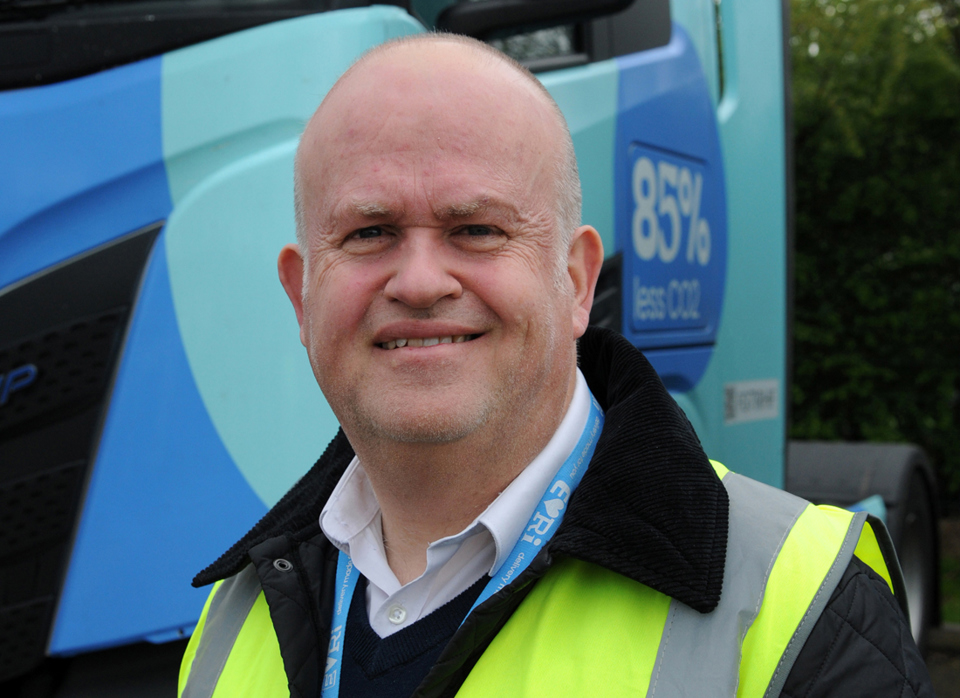
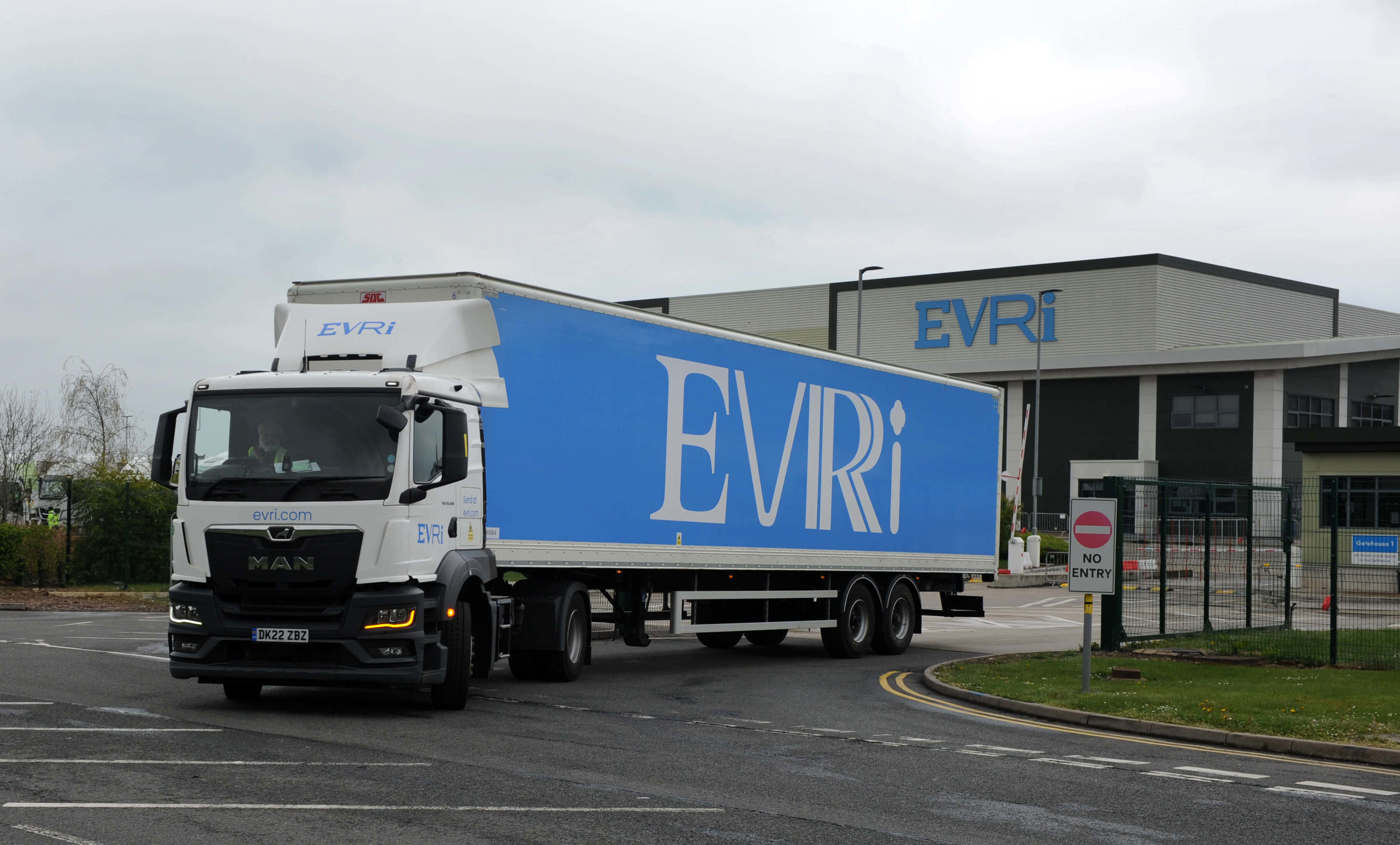
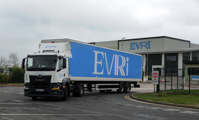
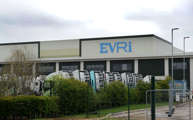
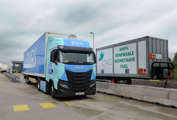
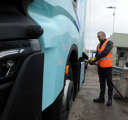
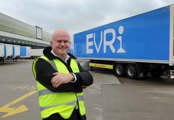

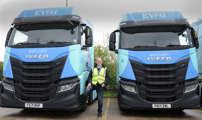
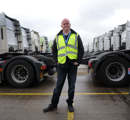






















Login to comment
Comments
No comments have been made yet.